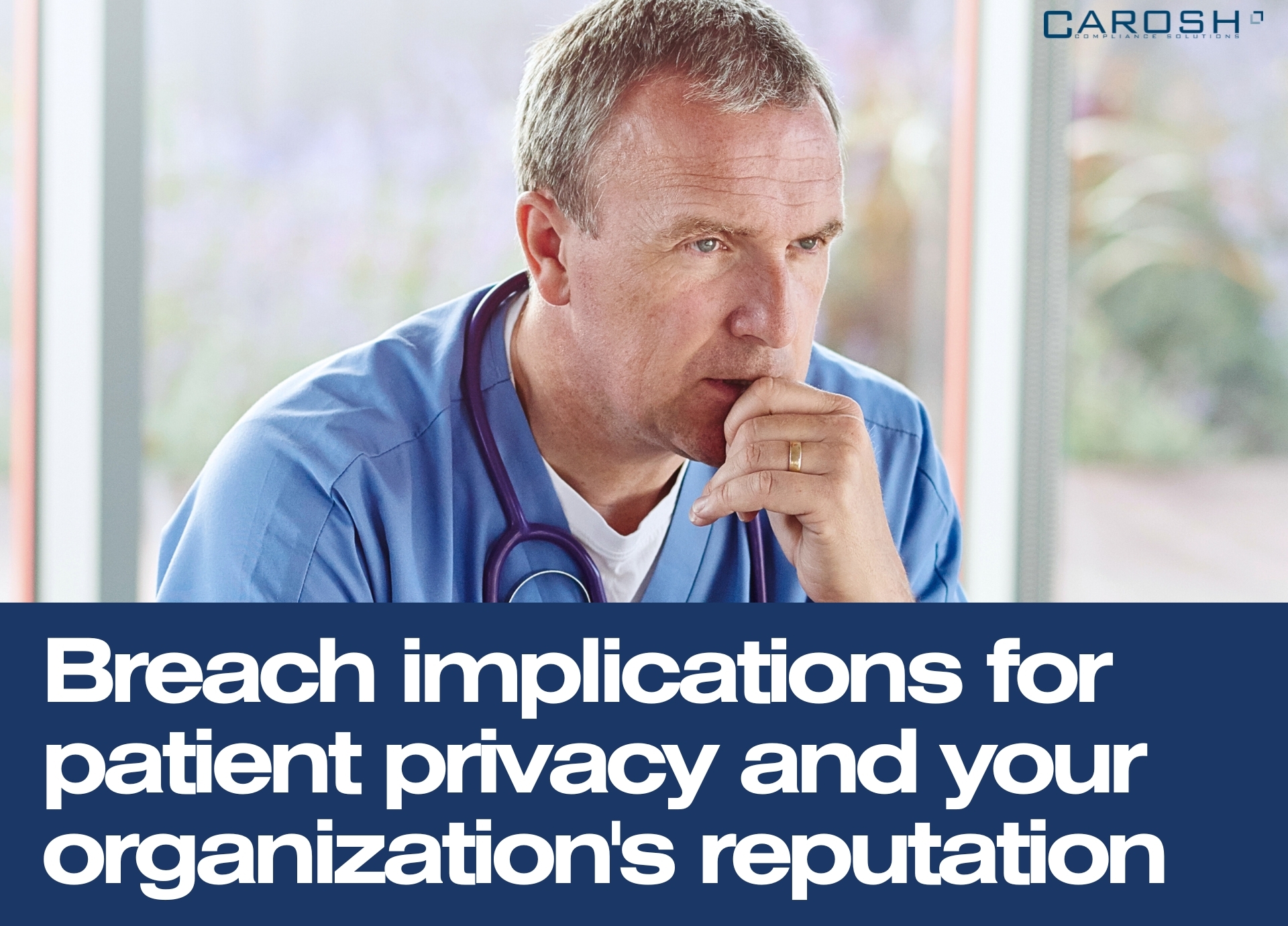
Table of Contents
Navigating the Aftermath of a HIPAA Data Breach: Understanding and Compliance
Key Components of a HIPAA Data Breach
HIPAA Breach Notification Rule
Consequences of a HIPAA Data Breach
In today’s digitally-driven healthcare environment, the protection of Protected Health Information (PHI) is more crucial than ever. Under the Health Insurance Portability and Accountability Act (HIPAA), a data breach involves any unauthorized access, use, disclosure, or loss of PHI, posing significant risks to patient privacy and the integrity of healthcare services. This comprehensive guide delves into the components of a HIPAA data breach, the requisite steps for notification, and the consequences of such breaches, aiming to equip healthcare professionals with the knowledge to navigate these challenging incidents effectively.
Key Components of a HIPAA Data Breach
Unauthorized Access and Its Implications
Unauthorized access to Protected Health Information (PHI) occurs when individuals without proper authorization, rights, or permission gain access to sensitive patient information. This breach of privacy not only compromises patient confidentiality but also violates HIPAA regulations, exposing healthcare entities to potential legal and financial repercussions. Unauthorized access can stem from a variety of scenarios, including but not limited to, employees viewing patient information without a valid reason, or external entities gaining access through inadequate security measures.

The Perils of Improper Disclosure
Improper disclosure involves the sharing of PHI without the patient’s explicit consent or without a legitimate need for treatment, payment, or healthcare operations. It also encompasses situations where PHI is disclosed in excess of what is minimally necessary to accomplish the intended purpose. Such breaches can occur through verbal discussions, electronic communications, or the improper handling of physical records, inadvertently exposing patient information to parties not entitled to view it. Improper disclosure undermines the trust between patients and healthcare providers and subjects the latter to scrutiny and sanctions under HIPAA guidelines.
Consequences of Losing PHI
The loss of PHI, whether through theft, misplacement, or the improper disposal of physical records or electronic devices containing such information, represents a significant breach of data security. Instances of lost laptops, unsecured electronic devices, or physical documents not shredded according to disposal protocols can lead to unauthorized individuals accessing patient information. The repercussions of losing PHI extend beyond the immediate risk to patient privacy, impacting the integrity of healthcare services and exposing the responsible entities to regulatory penalties and loss of reputation.
Hacking and IT Incidents: A Growing Threat
In an era where digital information is paramount, hacking and IT incidents have emerged as prominent threats to the security of PHI. Cyberattacks, such as ransomware or phishing schemes, are sophisticated methods used by malicious actors to infiltrate healthcare systems, exposing or potentially exposing sensitive patient information. These incidents not only disrupt healthcare operations but also compromise the confidentiality and integrity of PHI, necessitating robust cybersecurity measures and vigilant monitoring of IT systems to prevent such breaches.
Understanding the nuances of unauthorized access, improper disclosure, loss of information, and hacking incidents is crucial for healthcare entities in safeguarding PHI. By recognizing these threats and implementing comprehensive security protocols, healthcare providers can protect their patients’ information and uphold the standards of privacy and trust that are foundational to healthcare delivery.
HIPAA Breach Notification Rule
The HIPAA Breach Notification Rule mandates that both covered entities and their business associates promptly inform individuals impacted by a breach of their Protected Health Information (PHI). This regulation is essential for ensuring accountability and transparency in the handling of sensitive health information, allowing affected individuals to take appropriate steps to protect themselves from potential consequences of the breach. The rule outlines several notification requirements:

Notification to Individuals: In the event of a breach, it’s imperative for covered entities to notify affected individuals without unreasonable delay, making sure that this communication occurs no later than 60 days after the breach has been identified. This prompt notification allows individuals to be aware of the breach and to take necessary measures to safeguard their privacy and security.
Notification to the Secretary
The rule further requires that breaches impacting 500 or more individuals be reported to the Secretary of the Department of Health and Human Services (HHS). This stipulation underscores the importance of federal oversight in significant breach incidents, ensuring that the broader implications of such breaches are addressed and mitigated.
Media Notification
In instances where a breach affects 500 or more individuals within a specific jurisdiction, covered entities are obligated to also notify prominent media outlets in the affected area. This ensures that the public is adequately informed about the breach, especially when direct notification to all impacted individuals might not be feasible.
Notification by Business Associates
Business associates, who handle PHI on behalf of covered entities, have the responsibility to inform the covered entity of any breaches. This enables the covered entity to meet its own notification obligations under the rule.
The HIPAA Breach Notification Rule provides a structured approach for responding to breaches of PHI, highlighting the importance of swift and comprehensive communication to affected individuals, regulatory bodies, and the public. By adhering to these guidelines, healthcare entities and their business associates demonstrate their commitment to protecting individual privacy and maintaining trust in the healthcare system.
Consequences of a HIPAA Data Breach
Data breaches in the healthcare sector can lead to serious repercussions, affecting both the entities responsible for protecting patient information and the individuals whose data has been compromised. The consequences of such breaches extend beyond the immediate loss of privacy and can have long-lasting impacts.
Financial Penalties
One of the most immediate consequences of a data breach is the potential for financial penalties. The Office for Civil Rights (OCR), which oversees HIPAA compliance, has the authority to levy substantial fines against entities that fail to adhere to HIPAA regulations, including those pertaining to the protection of Protected Health Information (PHI). These fines can reach into the millions, depending on the severity and extent of the breach, as well as the perceived level of negligence involved.
Legal Action
In addition to regulatory fines, entities responsible for data breaches may also face legal action from individuals affected by the breach. Patients whose PHI has been exposed or misused may seek compensation for damages through lawsuits, further compounding the financial and reputational costs for the healthcare provider or associated entity.
Reputational Damage
Perhaps one of the most challenging consequences to overcome is the reputational damage that can result from a data breach. Trust is a big component of the patient-provider relationship, and breaches can severely erode this trust. The public disclosure of a breach can lead to loss of patient confidence, potentially driving patients to seek care elsewhere and making it difficult for the entity to attract new patients.
Remediation Costs
Beyond fines and legal costs, entities must also contend with the expenses associated with responding to a breach. These can include the costs of conducting IT forensic investigations to determine the breach’s scope and origin, legal fees associated with managing the breach’s aftermath, and the costs of measures to prevent future breaches, such as credit monitoring services offered to affected individuals.
To mitigate the risks of data breaches and their associated consequences, healthcare entities must adopt a proactive approach to data protection. This involves implementing robust privacy and security measures tailored to the organization’s specific needs, conducting regular risk assessments to identify and address vulnerabilities, training employees on best practices for data protection, and staying current with the latest threats to health information security and regulatory updates. Through diligent efforts to protect PHI, healthcare organizations can minimize the risks of breaches and uphold their commitment to patient privacy and trust.

A HIPAA data breach not only undermines patient trust but also exposes healthcare entities to substantial legal and financial repercussions. By understanding what constitutes a breach, adhering to the Breach Notification Rule, and implementing robust security measures, healthcare organizations can mitigate the risks and impact of data breaches. Proactive risk management, regular staff training, and a commitment to compliance are key to safeguarding patient information and maintaining the trust foundational to healthcare provision.
Q&A
Q: What constitutes a data breach under HIPAA?
A: A HIPAA data breach involves unauthorized access, use, disclosure, or loss of Protected Health Information (PHI) not permitted under the Privacy Rule.
Q: What are the requirements for breach notification under HIPAA?
A: HIPAA requires covered entities to notify affected individuals, the HHS Secretary, and, in cases affecting 500 or more individuals in a particular jurisdiction, prominent media outlets.
Q: What are the consequences of a HIPAA data breach?
A: Consequences include financial penalties imposed by the OCR, legal action from affected individuals, reputational damage, and the costs associated with breach remediation.




